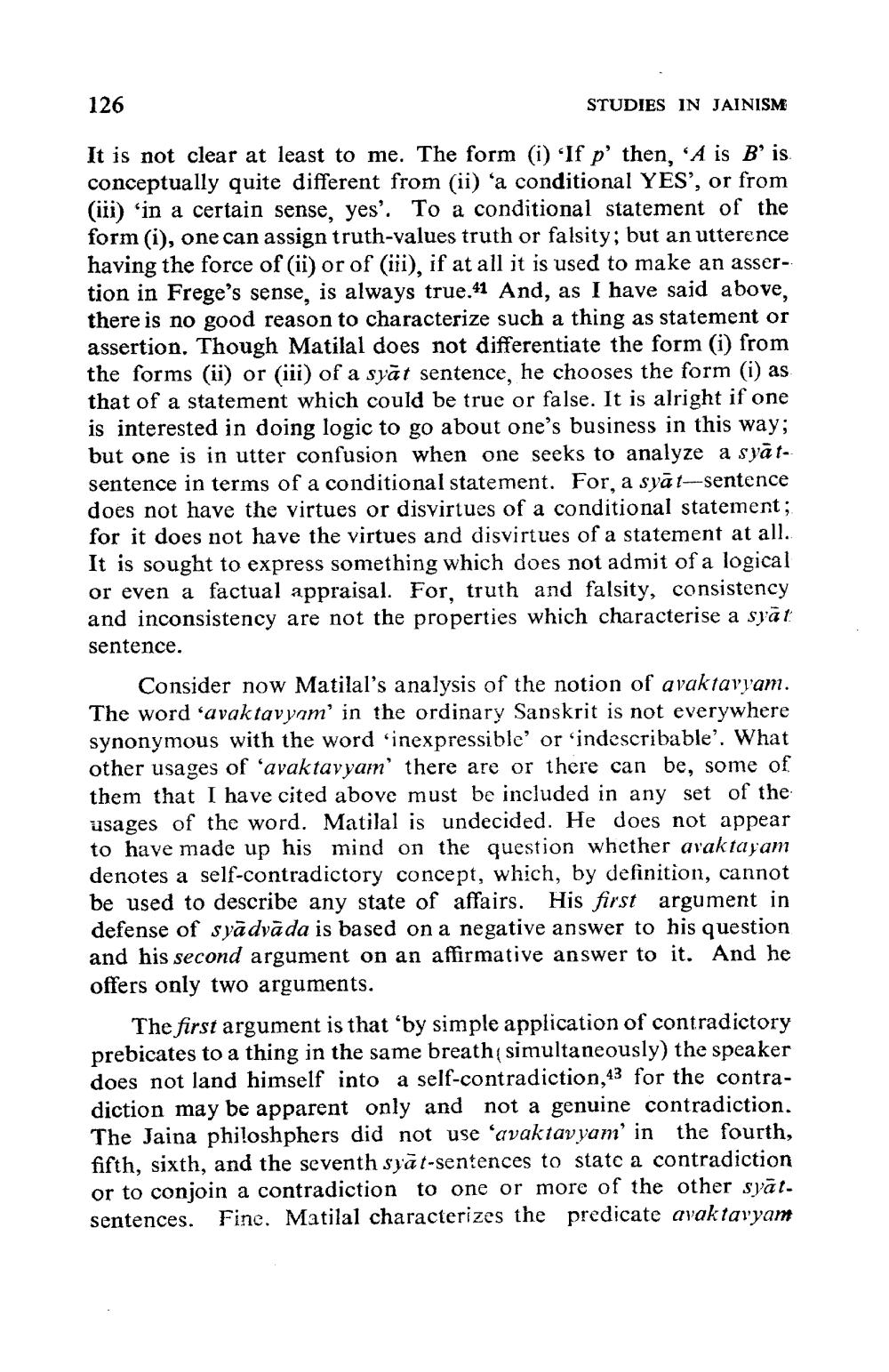________________
126
STUDIES IN JAINISM
It is not clear at least to me. The form (i) 'If p' then, 'A is B' is conceptually quite different from (ii) 'a conditional YES', or from (iii) 'in a certain sense, yes'. To a conditional statement of the form (i), one can assign truth-values truth or falsity; but an utterence having the force of (ii) or of (iii), if at all it is used to make an assertion in Frege's sense, is always true.41 And, as I have said above, there is no good reason to characterize such a thing as statement or assertion. Though Matilal does not differentiate the form (i) from the forms (ii) or (iii) of a syat sentence, he chooses the form (i) as that of a statement which could be true or false. It is alright if one is interested in doing logic to go about one's business in this way; but one is in utter confusion when one seeks to analyze a syat-sentence in terms of a conditional statement. For, a syat-sentence does not have the virtues or disvirtues of a conditional statement; for it does not have the virtues and disvirtues of a statement at all.. It is sought to express something which does not admit of a logical or even a factual appraisal. For, truth and falsity, consistency and inconsistency are not the properties which characterise a syat
sentence.
Consider now Matilal's analysis of the notion of avaktavyam. The word 'avaktavyam' in the ordinary Sanskrit is not everywhere synonymous with the word 'inexpressible' or 'indescribable'. What other usages of 'avaktavyam' there are or there can be, some of them that I have cited above must be included in any set of the usages of the word. Matilal is undecided. He does not appear to have made up his mind on the question whether avaktayam denotes a self-contradictory concept, which, by definition, cannot be used to describe any state of affairs. His first argument in defense of syadvāda is based on a negative answer to his question and his second argument on an affirmative answer to it. And he offers only two arguments.
The first argument is that 'by simple application of contradictory prebicates to a thing in the same breath( simultaneously) the speaker does not land himself into a self-contradiction,43 for the contradiction may be apparent only and not a genuine contradiction. The Jaina philoshphers did not use 'avaktavyam' in the fourth, fifth, sixth, and the seventh syat-sentences to state a contradiction or to conjoin a contradiction to one or more of the other syatsentences. Fine. Matilal characterizes the predicate avaktavyam




